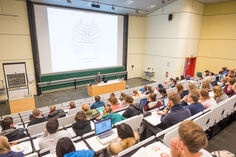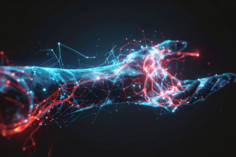
Dr. Gregor Bergmann
Adresse
Im Neuenheimer Feld 30769120 Heidelberg
Zimmernummer 406
RESEARCH SUMMARY
Our Brains are made of a complex and intricate network of excitatory and inhibitory neurons that stimulate or repress eachother respectively. Such networks maintain a delicate balance of excitation and inhibition so that they can process very weak stimuli with a similar level of fidelity as they can process moderate or strong stimuli. I am interested in how this balance is maintained during and after neuonal maturation, how pertubations of this balance influence nervous system functionality, and how environmental factors such as xenobiotics affect this balance.
CURRICULUM VITAE
2014 Bachelor of Science in Biology, University of Würzburg, Germany
2017 Master of Science in Biology, University of Würzburg, Germany
2021 PhD in Neuroscience, University of Veterinary Medicine Hannover, Germany
2021-2024 Postdoc, School of Biosciences, The University of Sheffield, United Kingdom
since 2024 Postdoc, Institute for Anatomy and cell Biology, Dept. Medical Cell Biology, University of Heidelberg, Germany
PUBLICATIONS
Bergmann, G. A. and Bicker G. (2021) Cholinergic calcium responses in cultured antennal lobe neurons of the migratory locust. Scientific Reports 11, 10018. https://doi.org/10.1038/s41598-021-89374-2
Bode, K., Nolte, L., Kamin, H., Desens, M., Ulmann, A., Bergmann, G. A., Betker, P., Reitmeier, J., Ripken, T., Stern, M., Meyer, H. and Bicker G. (2020) Scanning laser optical tomography resolves developmental neurotoxic effects on pioneer neurons. Scientific Reports 10, 2641. https://doi.org/10.1038/s41598-020-59562-7
Bergmann, G. A., Frömbling, S., Joseph, N., Bode, K., Bicker, G. and Stern, M. (2019) An intact insect embryo for developmental neurotoxicity testing of directed axonal elongation. ALTEX 36, 643-649. https://doi.org/10.14573/altex.1901292
Selcho, M., Millán, C., Palacios-Muñoz, A. Ruf, F., Ubillo, L., Chen, J., Bergmann, G., Ito, C., Silva, V. and Wegener, C. (2017) Central and peripheral clocks are coupled by a neuropeptide pathway in Drosophila. Nature Communications 8, 15563. https://doi.org/10.1038/ncomms15563




